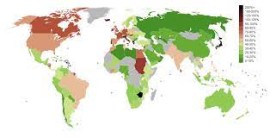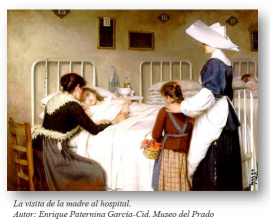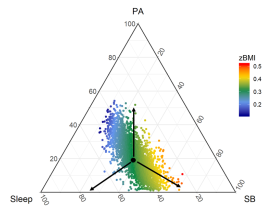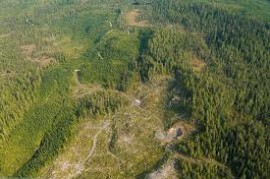- Fecha(s): 10/03/2022
- Lugar: Semiario del Departamento de FAE de la Universidad de Murcia
- Ponente: Concepción González García

In this paper, I build a dynamic general equilibrium model calibrated to the U.S. economy to study the macroeconomic effects of alternative fiscal consolidation strategies in a context where the private sector is heavily indebted. Fiscal consolidation is defined as a permanent reduction of the public debt-to-GDP ratio by means of government spending cuts or…
- Fecha(s): 09/03/2022
- Lugar: Sala Seminarios CIO (Se grabará).
- Ponente: Juan Carlos Gonçalves (UMH-Ayuda Margarita Salas).

Project management is an important body of knowledge and practices that comprises the planning, organization and control of resources to achieve one or more pre-determined objectives. In this presentation, we introduce ProjectManagement, a new R package that provides the necessary tools to manage projects in a broad sense, and illustrate its use by examples. We…
- Fecha(s): 17/02/2022
- Lugar: Seminario del Departamento de Métodos Cuantitativos para la Economía y la Empresa
- Ponente: Javier Palarea-Albaladejo. Universidad de Girona

Multivariate observations referring to parts of a whole, so-called compositions or compositional data in statistics, are common across varied scientific fields. This is for example the case when dealing with chemical concentrations, food nutritional contents, election vote shares, investment portfolios, time-use and behavioural patterns, relative abundances, amongst others. Their distinctive feature is that there is…
- Fecha(s): 27/01/2022
- Lugar: Seminario del Departamento de Métodos Cuantitativos para la Economía y la Empresa
- Ponente: Manuel Serrano Alarcón. Bocconi University (Milan, Italia)

Abstract: This paper examines the role of LTC benefits on the use of primary and secondary care by exploring a detailed administrative database in Spain. We estimate the causal effect of receiving LTC benefits by exploiting exogenous variation in the leniency of the examiners who assess the claimants’ LTC needs. We find that a monthly LTC…
- Fecha(s): 15/12/2021
- Lugar: Videoconferencia (Zoom) - Se proporcionará el enlace a través del Aula Virtual
- Ponente: Andrea Lluch

As recent studies have shown, the way that managers are educated and selected to top management positions is a complex phenomenon with variations both over time and in different national contexts. New findings show that the transference of American ideas for management education was not linear, that the post-war international scene was not a tabula…
- Fecha(s): 09/12/2021
- Lugar: Seminario del Departamento de Economía aplicada (A301) - Facultad de Economía y Empresa - Universidad de Murcia
- Ponente: Josep Bernabeu

El descenso de la mortalidad se convirtió en uno de los elementos clave que hizo posible el proceso de modernización demográfica que experimentaron las poblaciones europeo- occidentales. El debate sobre las causas que estuvieron detrás del mismo se ha convertido en una de las cuestiones historiográficas que más polémica ha suscitado en las últimas décadas….
- Fecha(s): 09/11/2021
- Lugar: Sala de Seminarios del CIO (Se grabará)
- Ponente: Francisco Morillas, Universidad de Valencia

Este trabajo trata de determinar la conveniencia en el cambio de tecnología para la determinación de una enfermedad gastrointestinal. La determinación de la bacteria o virus que ataca al organismo puede ser determinante en las primeras horas, evitando posibles infecciones graves e incluso sepsis. Los dos procedimientos comparados son: (i) técnicas de cultivo estándar, utilizado…
- Fecha(s): 25/11/2021
- Lugar: Seminario del Departamento de Métodos Cuantitativos para la Economía y la Empresa
- Ponente: Gabriel Brida. Universida de la República (Uruguay)

This study models the relative expenditure of tourists in terms of budget allocation as a function of a set of co-variables. The purpose is to model how the tourist distributes its budget among the different items, what are the characteristics of the tourist that infer a certain relative spending pattern and if this pattern has…
- Fecha(s): 04/10/2021
- Lugar: Seminarios online CIO: http://cio.edu.umh.es/seminariosonline/
- Ponente: Antonio Manuel Durán (i92duroa@uco.es) Univ. de Córdoba

Currently, information systems such as sensors produce a large amount of data, which is expected to experience exponential growth in the coming years. These data are often treated as time series, which are chronologically collected data representing a time-varying function. Time series appear in a wide range of scientific fields, such as hydrology, paleoclimatology or…
- Fecha(s): 05/07/2021
- Lugar: Seminarios online CIO: http://cio.edu.umh.es/seminariosonline/
- Ponente: Maria Chiara Pagliarella, INAPP of Rome and University of Cassino and Southern Lazio

The Reduction of Emissions from Deforestation and forest Degradation (REDD) project was proposed and initiated in 2005. Monitoring of forest cover by statistical methodologies is a key pre-requisite. Forest cover is usually estimated at large scale by spatial sampling strategies, in which the study region is partitioned into polygons of equal size (e.g. quadrats). Then,…











